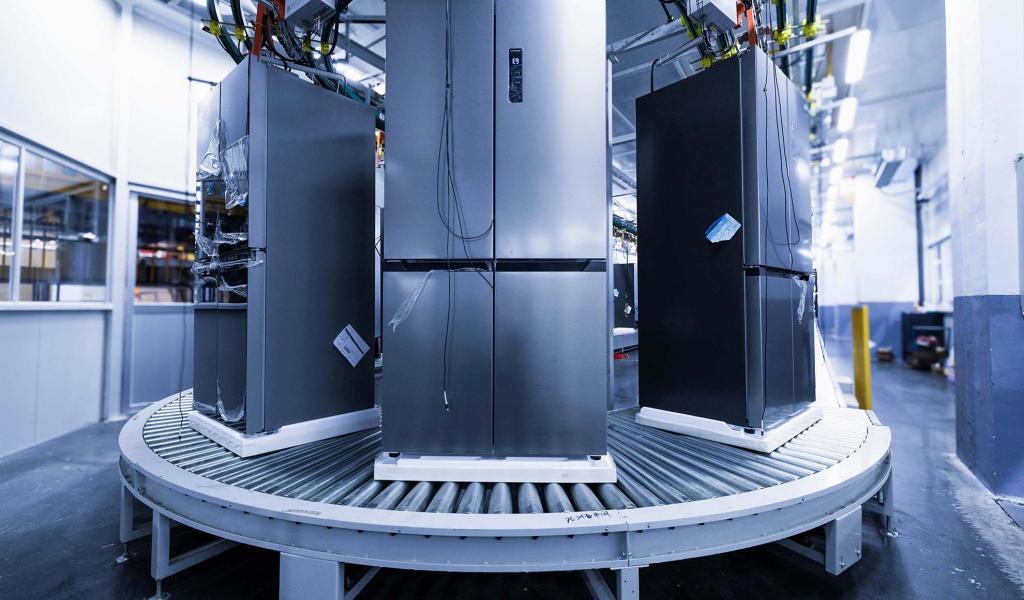News
Setting the Standard: EELA’s Push for MEPs and a Resilient Energy Future in Africa

Since its inception in 2019, the development of regionally harmonized Minimum Energy Performance Standards (MEPS) has been one of the core areas of intervention under UNIDO’s EELA Project for advancing energy efficiency, simultaneously strengthening industrial competitiveness and supporting the decarbonization of economies in sub-Saharan Africa.
MEPS define performance thresholds for the maximum allowable energy consumption of appliances before they can be legally sold or used in a given region. Regulators around the world use MEPS to enhance the energy performance of products such as lighting, cooling systems, and other energy-intensive equipment. When aligned with international best practices and targets, updated MEPS enable governments to deliver cost and energy savings to consumers while actively addressing climate change and accelerating energy transitions.
From a market perspective, MEPS shift competitive dynamics by placing greater emphasis on product quality over low-cost inefficiencies. This encourages standardized production, drives supply chain transformation, and promotes economies of scale for innovative, energy-efficient technologies. In the African context, when correctly enforced, MEPS can help protect African markets from being flooded with substandard, energy-intensive appliances—a common issue for lighting, refrigerators, and air conditioners. In low-income households, where consumers often purchase inexpensive but inefficient products, MEPS can ensure better value, reducing domestic and commercial energy bills, particularly in rural areas, and reduce stress on the grid, especially where infrastructure is fragile. Additionally, energy efficiency contributes to gender equality by decreasing the time and labor required for domestic chores, thereby empowering women to pursue income-generating activities.
Through the establishment of MEPS in the EAC and SADC regions, EELA has helped phase out outdated technologies, foster the development and distribution of more efficient products, and promote the uptake of environmentally friendly appliances. Rather than promoting isolated interventions at the country level, where markets may be too small to justify investment, the project has emphasized regionally harmonized MEPS. This regional approach recognizes that harmonization across countries eliminates trade barriers, attracts industrial investment, and reduces costs through shared testing infrastructure, thereby creating scale and stronger incentives for industry participation.
To support the development and adoption of these standards, four MEPS development and validation processes were launched in the EAC and SADC regions, one each for lighting and cooling. A total of 31 national and regional technical committees were established or strengthened to facilitate this work. Consultations were held in 17 countries for cooling MEPS and in 21 countries for lighting MEPS. National adoption of the harmonized cooling MEPS has already occurred in Zimbabwe, Eswatini, and Namibia, covering 3.8% of the regional population. The adoption process is ongoing in Botswana, South Africa, and the Seychelles, supported by UNEP-U4E and GIZ.
As a result of the efforts by the project team and its stakeholders, energy-efficient lighting and cooling appliances have become accessible to approximately 190 million people across the SADC and EAC regions, roughly 35% of the population with electricity access. These households and businesses stand to benefit from lower energy costs, improved energy security, and new livelihood opportunities. Additionally, reduced grid demand can free up capacity to expand electricity access elsewhere, while decreased fuel imports can enhance trade balances and support broader economic development. In total, the EELA project is estimated to have already positively impacted over 395 million lives, including around 200 million people living in poverty. As MEPS and labeling schemes are increasingly adopted and enforced across the region, and as electricity access expands, the number of people positively impacted is expected to rise substantially, reaching 800 million by 2030.
The project has already led to significant energy savings through increased uptake of energy-efficient appliances. According to project data from the end of 2024, 660,000 MWh of energy has been saved, while lighting alone is expected to deliver up to 32,000,000 MWh in savings by 2030. Based on current energy prices, these savings translate into substantial cost reductions, calculated at €64 million in energy savings to date, and over €3 billion in cumulative lighting-related savings expected by 2030.
Last but not least, energy efficiency is one of the strongest allies on our path to net zero, contributing significantly (as much as 40%, according to IEA data) to the efforts needed to stay on track with 2030’s Paris Agreement greenhouse gas (GHG) reduction targets. These reductions are especially significant in countries dependent on coal-fired power generation. The reductions achieved under the EELA project have been calculated by the project’s energy experts as 458,000 tonnes of CO2e avoided by the end of the project in November 2024, with 24 million tonnes of CO2e expected to be mitigated by 2030.
Over the coming years, the EELA Program will focus on updating and harmonizing Minimum Energy Performance Standards (MEPS) and energy labelling schemes across Africa to support market integration and reflect recent technological advancements. In ECOWAS, EELA will work to revise existing lighting MEPS in line with updated technological standards and support their regional adoption. In SADC, new regional MEPS will be developed for distribution transformers and industrial motors, building on national standards already introduced in nine countries. In EAC, industrial motors and private sector-relevant appliances have been prioritized. Additionally, EELA will advance regional labelling programs in all three regions, supporting the development of up to three product labels each in SADC and EAC for lighting, air conditioners, and refrigerators, while promoting label harmonization to ensure comparability across regions.